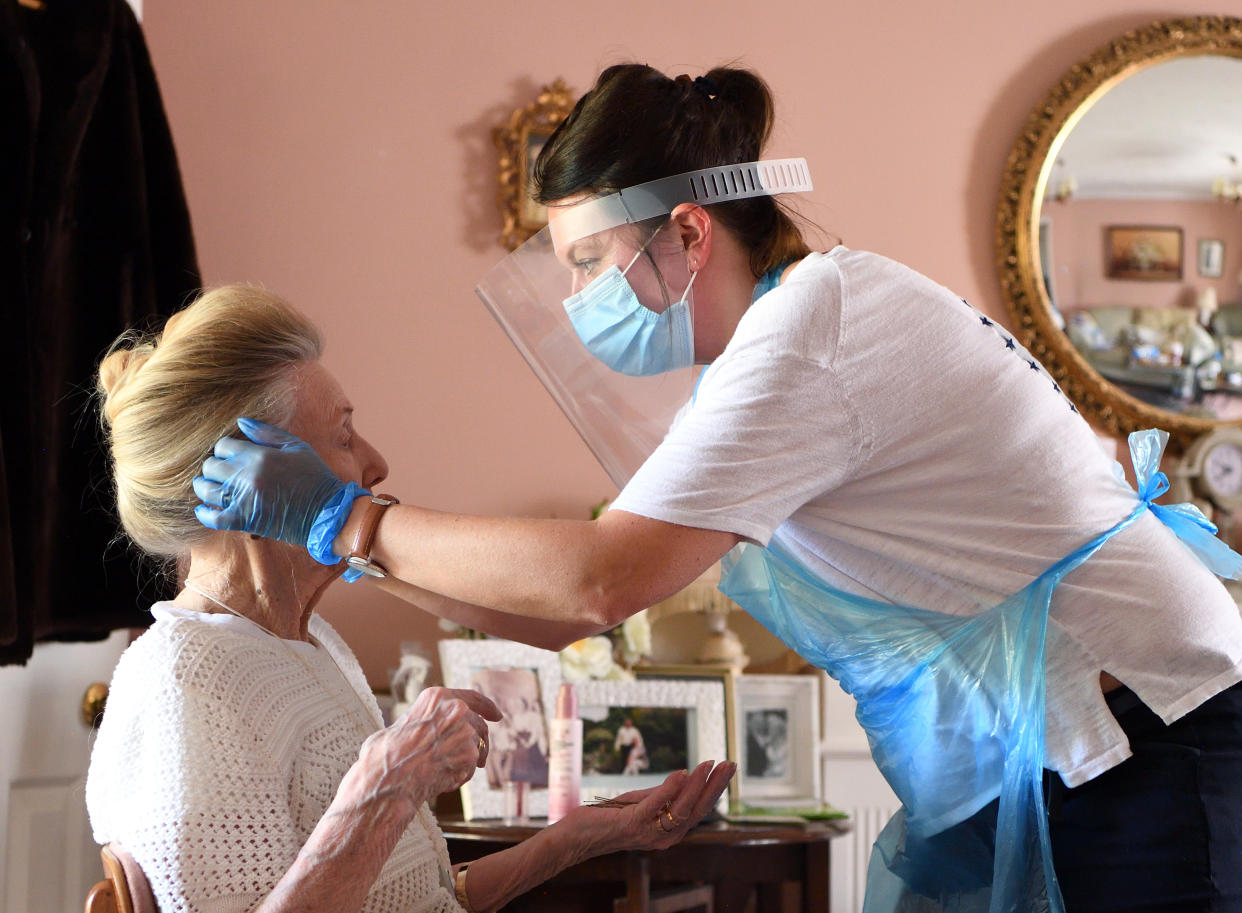Coronavirus: Outbreaks in care homes could undermine Boris Johnson’s lockdown changes, warns scientist

Coronavirus outbreaks in care homes could undermine the government’s move to ease the UK’s lockdown, a scientist has warned.
On Sunday, Boris Johnson announced a range of new measures to take the UK out of its COVID-19 lockdown.
However, the prime minister’s televised address was criticised by scientists, opposition politicians and workers’ unions, who called it vague and confusing.
The government was scrambling on Monday to provide more clarity on the new measures, which come into force on Wednesday.
In his speech, Johnson announced that people who cannot work from home should return to their workplaces, but avoid public transport.
The government says Britons can meet one person from another household in a park if they keep two metres apart, although there was confusion on Monday when foreign secretary Dominic Raab suggested they could meet two people at once.
The public will be allowed to drive to parks and beaches, with no limit on the distance travelled.
But Johnson was accused of not paying enough attention to the situation in care homes in his speech.
“A major area that was not adequately addressed was the issue of the epidemic in care homes,” said Paul Hunter, professor in medicine at the University of East Anglia.

“It is becoming increasingly clear that the epidemic in care homes is the Achilles heel in the UK’s ability to control this epidemic.
“It may well be that whatever we do or do not do in moving out of lockdown could be undermined from spread back into the community from care home outbreaks. This issue has to be higher up the UK’s priority.”
Prof Hunter said Johnson’s statement “left a lot of questions unanswered”.
Latest coronavirus news, updates and advice
Live: Follow all the latest updates from the UK and around the world
Fact-checker: The number of COVID-19 cases in your local area
6 charts and maps that explain how COVID-19 is spreading
He said there is an issue with how the government’s “broad statements” are interpreted by the public.
Dr Rupert Beale, from the Cell Biology of Infection Laboratory at the Francis Crick Institute, said: “I am concerned that confused messaging might lead people to relax their efforts too soon.
“It’s imperative that a really effective testing, tracing and isolation system is working before any significant change to the rules takes place.”
Watch the video below
Figures from the Office for National Statistics (ONS) released on Monday showed that people working in social care, including care workers and home carers, have "significantly" higher death rates involving COVID-19 than the working population as a whole.
For male social care workers in England and Wales, the rate of death involving COVID-19 is estimated to be 23.4 deaths per 100,000 males, while for female social care workers the figure is 9.6, the ONS said.
By contrast, for all males of working age (20 to 64 years old), the rate of death involving COVID-19 is 9.9 deaths per 100,000, with 5.2 deaths per 100,000 females.
Nicola Richards, director of Palms Row Health Care in Sheffield, said the social care sector is “on a cliff edge”, with homes across the UK facing closure as they spend an extra £38.6m per week on COVID-19 costs.
She said 18 residents have died in outbreaks at two of her three homes, and 60 residents have tested positive.
She said: "We're on a cliff edge. The sector that's been hit the hardest, ultimately is the one that's most at risk now.
"It just feels it's almost immoral, unethical that potentially the staff that have worked through this are potentially at risk of losing jobs. I can't explain how hard that feels."

 Yahoo News
Yahoo News 


